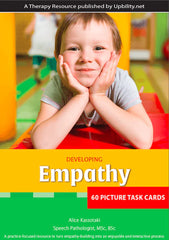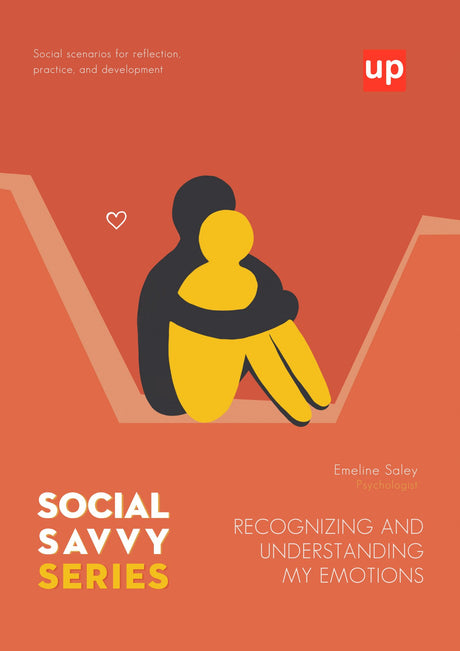Introduction
Asperger syndrome, also known as Autism Spectrum Disorder (ASD) Level 1, is a developmental disorder characterized by challenges in social communication, limited interests and repetitive behaviors.
Today, we explore the scientific aspects of Asperger syndrome in adults and delve into the concept of neurodiversity, emphasizing the importance of accepting and celebrating individual differences.
Let's begin a journey of empowerment and understanding of adults with Asperger's Syndrome.

Understanding Asperger syndrome in adult life
In adulthood, people with Asperger's continue to exhibit unique characteristics and traits. Research studies have shown that adults with autism often demonstrate superior cognitive abilities, particularly in areas requiring attention to detail and problem-solving skills (Baron-Cohen et al., 2009).
This emphasis on specialized interests and talents contributes to the richness of neurodiversity, as each individual brings a unique perspective to society.
High-functioning autism
High-functioning autism is a term used to describe people on the autism spectrum who have moderate to above-average intellectual and language skills, but still face challenges in social communication and interaction.
They may have limited interests, repetitive behaviours and sensory sensitivities like other individuals on the autism spectrum.
High-functioning autism was once used as a separate diagnosis, but is no longer recognised as such in more recent diagnostic classification systems such as the DSM-5.
Instead, these individuals are now commonly diagnosed with Autism Spectrum Disorder (ASD) Level 1.
Asperger's syndrome, on the other hand, was previously considered a separate diagnosis characterised by significant difficulties in social interactions and repetitive patterns of behaviour.
However, with the 2013 version of the DSM-5, Asperger Syndrome was folded into the broader category of ASD, including individuals who would previously have been diagnosed with high-functioning autism or Asperger's.
As such, high-functioning autism and Asperger syndrome are related, as both refer to individuals on the autism spectrum who demonstrate relatively strong cognitive and language skills, but are now considered under the same umbrella term of Autism Spectrum Disorder (ASD).
Embracing neurodiversity
Neurodiversity refers to the recognition and acceptance of diverse neurological conditions, such as ASD, as a natural variation of human cognition (Silberman, 2015).
Embracing neurodiversity entails recognizing the value that people with autism bring to a variety of fields, from science and technology to the arts and humanities. It challenges the prevailing stereotypes and misconceptions surrounding ASD and promotes an inclusive environment where everyone's unique abilities are celebrated.

Strengths of adults with asperger syndrome
Numerous scientific studies have highlighted the strengths of adults with Asperger's syndrome. Their focused attention to detail and excellent memory have proven to be an advantage in areas such as mathematics, engineering, and computer science (Happé & Vital, 2009). In addition, their honesty and commitment to relationships help create genuine bonds with others.
Addressing the challenges
While adults with asperger syndrome have remarkable strengths, they may face challenges in some aspects of life. Sensory sensitivities can lead to discomfort and anxiety in various environments (Green et al., 2019).
Strategies such as sensory integration therapy have shown promise in helping individuals effectively manage these sensitivities. In addition, social interactions can be challenging for individuals with aspergers due to difficulties interpreting nonverbal cues and understanding social norms. Social skills training and cognitive-behavioral therapy has been shown to improve social functioning in this population (White et al., 2017).
 Creating a support network
Creating a support network
Family support plays a key role in the well-being of adults with Asperger's. Understanding and acceptance in the family environment can promote a positive self-image and boost self-confidence (Smith et al., 2012). In addition, seeking professional support from therapists, counsellors or participating in support groups with peers who share similar experiences can provide valuable insights and coping strategies.
Navigating adult relationships with aspergers
Navigating relationships can be particularly challenging for people with aspergers. Communication difficulties may require clarity in expressing thoughts and feelings (Kuusikko-Gauffin et al., 2008).
In the workplace, open communication with employers and colleagues can lead to reasonable adjustments that optimize job performance (Baldwin et al., 2015). Developing friendly relationships may require patience and understanding from both parties to create meaningful connections.

Self-care and wellness
Caring for physical and emotional wellbeing is essential for all people, including adults with autism. Engaging in activities that align with personal interests and passions can be a source of joy and relaxation (Gillespie-Lynch et al., 2017).
Establishing healthy routines, practicing mindfulness, and seeking support in times of stress are critical steps in maintaining overall well-being.
Embracing independence
In adulthood, people with aspergers often pursue higher education and career goals. Providing appropriate accommodations in educational settings can optimize academic success (Gardner et al., 2016). Independent living can present challenges, but with the right support and education, many adults with asperger syndrome have found success in managing daily tasks and responsibilities.
Thriving in adult life with Asperger's
Well-being in adulthood with Asperger syndrome involves setting realistic goals and ambitions, accepting failures as opportunities for growth, and cultivating resilience and self-confidence (Crompton et al., 2019).
By recognising the diverse talents and strengths within the neurodiverse community, we can create a society that is more inclusive and accepting of all.
Personal stories and experiences
Personal stories and experiences from people with aspergers and their families provide valuable insights into the challenges and triumphs of navigating adult life on the autism spectrum. Listening to these narratives can inspire hope and instill a sense of belonging in the neurodiverse community.
Conclusion
In conclusion, we understand the importance of accepting individual differences and celebrating the unique strengths of adults. By cultivating a supportive and inclusive environment, we can empower individuals on the autism spectrum to thrive in all aspects of life. Together, let's promote acceptance, understanding and appreciation of neurodiversity to create a world where everyone can reach their full potential.
Original content from the Upbility writing team. Reproduction of this article, in whole or in part, without attribution to the publisher is prohibited.
You can also read:
- Asperger Syndrome: a guide for family and friends
- The Link Between ADHD and Exercise
- Improve Your Child's Self-Esteem With Extracurricular Activities
- ADHD and Lying: The Reasons Why Kids With ADHD Are Prone to Lying
- Back to School: Making it Easier for Students With Learning Disabilities
- ADHD and Substance Abuse in Teenagers A Research
Suggested Books on Special education :















